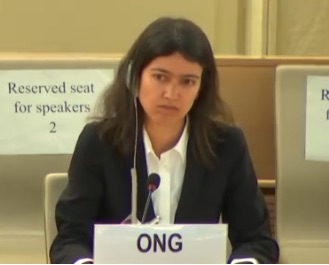
Sep 11, 2019 | Advocacy, Non-legal submissions
The ICJ today reiterated its call for the UN Human Rights Council to establish an international independent Commission of Inquiry on the human rights situation in Venezuela.
The statement, delivered in a general debate at the Council following the oral update by the UN High Commissioner for Human Rights mandated by the previous Human Rights Council resolution on Venezuela, read as follows:
“Mr. President,
The International Commission of Jurists (ICJ) welcomes the High Commissioner for Human Rights’ oral update on the situation in Venezuela.
The update and previous reporting point to a wide range of human rights violations, which continue to occur inside the country. These include arbitrary deprivation of liberty, serious violations of indigenous people’s rights, excessive use of force by security forces and attacks on freedom of expression, among others, as well as the impacts of laws, policies and practices that have adversely affected the independence of the judiciary.
Over the years, the International Commission of Jurists has monitored and documented the lack of judicial independence in Venezuela and the absence of accountability for those responsible for gross human rights violations.
The ICJ urges the Human Rights Council to establish an independent Commission of Inquiry on the human rights situation in Venezuela, given that Venezuelan authorities have been unable or unwilling to pursue effective domestic accountability, and judicial and prosecutorial mechanisms in the country lack independence and impartiality.
The Commission of Inquiry should be mandated to investigate reports of violations of international human rights law in Venezuela, establish the facts and circumstances of violations committed since at least 2014, and identify those responsible with a view to contributing to full accountability for all violations, including those that constitute crimes under international law.
Thank you.”
The oral update of the UN Human Commissioner for Human Rights, on the situation in Venezuela, may be accessed here.
In August 2019, the ICJ joined other NGOs in calling for an international commission of inquiry on Venezuela.
States are expected to discuss a further resolution on Venezuela at the current Human Rights Council session, for adoption on 26 or 27 September.
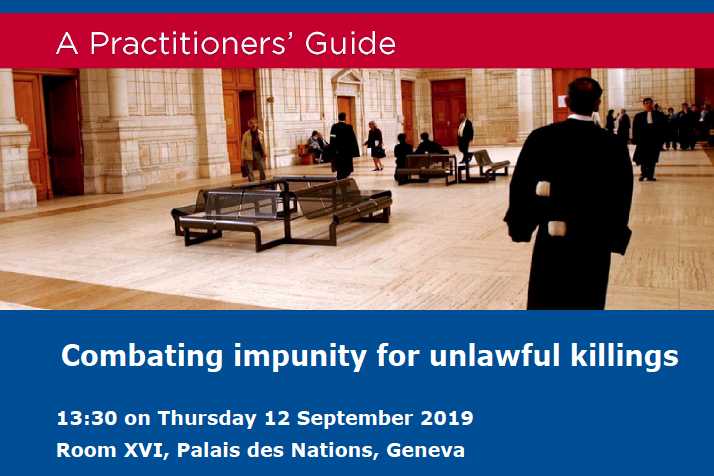
Sep 10, 2019 | Events, News
The ICJ invites you to a discussion of new tools to assist investigation and accountability for extrajudicial, summary or arbitrary executions, and other potentially unlawful deaths. The event takes place on Thursday, 12 September, 13:30, Room XVI, at the Palais des Nations in Geneva.
ICJ’s new Practitioners’ Guide No 14 on the Investigation and Prosecution of Unlawful Death helps legal practitioners ensure that investigation and accountability processes are implemented in accordance with international human rights law.
The Guide elaborates on the revised Minnesota Protocol on the Investigation of Potentially Unlawful Death (2016), a set of practical standards and guidelines that was updated by former UN Special Rapporteur on extrajudicial, summary or arbitrary executions, Christof Heyns, and published by the Office of the United Nations High Commissioner for Human Rights (OHCHR) in 2017.
The panel discussion will highlight key elements of the Protocol and Practitioners Guide, and their relevance to cases such as the 2016 killing of political commentator, Kem Ley, in Cambodia and the 2018 killing of Saudi Journalist, Jamal Khashoggi in Turkey.
Speakers
- Agnes Callamard, Special Rapporteur on extrajudicial, summary or arbitrary executions (by video conference, TBC).
- Stuart Maslen, Honorary Professor, Centre for Human Rights, University of Pretoria.
- Kingsley Abbott, Senior Legal Adviser & Coordinator of the ICJ’s Global Accountability Initiative.
Moderator
- Carolina Villadiego, ICJ Legal and Policy Adviser, Latin America
Printed copies of the ICJ’s Practitioners’ Guide No 14 on the Investigation and Prosecution of Unlawful Death will be available.
A flyer for the event is available here.
*** Room XVI is on the 5th floor of Building A, behind the Assembly Hall, accessible by the elevators at the Salle des Pas Perdus. Details here.
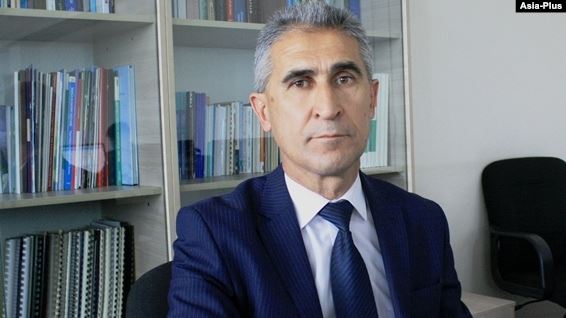
Sep 10, 2019 | Новости, Статьи
Сегодня Международная комиссия юристов (МКЮ) выразила обеспокоенность в связи с актами запугивания в отношении председателя Союза адвокатов Республики Таджикистан Саидбека Нуритдинова и еще 15 адвокатов со стороны государственного ведомства по борьбе с коррупцией.
По всей видимости, оказываемое давление связано с тем, что адвокаты осуществляют защиту Абдулазиза Абдурахмонзода. Дело по обвинению адвоката в мошенничестве рассматривается судом, и имеются сведения о том, что в ходе содержания под стражей он подвергся жестокому обращению со стороны сотрудников Агентства по финансовому контролю и борьбе с коррупцией Республики Таджикистан (Антикоррупционное ведомство).
После того, как адвокаты, осуществляющие защиту Абдурахмонзода, заявили о жестоком обращении, судья Ахмадзода Фарогат из суда района Сино г. Душанбе, которая рассматривает данное дело, обратилась в Генеральную прокуратуру с просьбой провести расследование по указанным жалобам.
После возбуждения проверки по заявлениям на жестокое обращение глава Антикоррупционного ведомства в г. Душанбе предположительно направил запросы в ряд районных судов г. Душанбе, чтобы получить информацию о гражданских и уголовных делах, в которых Саидбек Нуритдинов принимал участие в качестве адвоката. Сообщается о том, что были запрошены такие данные, как имена и адреса клиентов; предмет гражданских дел и сведения об обвинениях, предъявленных подзащитным. Кроме того, МКЮ стало известно о том, что судья Ахмадзода Фарогат по запросу Антикоррупционного ведомства передала последнему список с именами пятнадцати адвокатов, а также копии их ордеров на представление интересов подзащитного.
МКЮ отмечает, что хотя указанные сведения не являются конфиденциальными, ранее подобные проверки, предпринятые Антикоррупционным ведомством, уже привели к уголовному преследованию и осуждению адвокатов.
«В данном случае в дело адвоката, привлеченного к уголовной ответственности, вступили его коллеги, включая руководителя Союза адвокатов, что соответствует профессиональной этике адвоката, – отметил Тимур Шакиров, старший правовой советник МКЮ. – Их участие в деле в качестве защитников соответствует международным стандартам, касающимся роли юристов, а также национальному законодательству Таджикистана».
«Если расследование связано с участием адвокатов в деле Абдурахмонзода, то оно может рассматриваться как средство запугивания адвокатов. В таком случае оно должно быть прекращено, а адвокатам должна быть предоставлена возможность действовать свободно и добросовестно, в соответствии с национальным законодательством и международным правом и стандартами, касающимися роли юристов», – добавил Шакиров.
Общие сведения
17 апреля 2019 года в отношении адвоката Абдулазиза Абдурахмонзода было возбуждено уголовное дело по статье 247 ч.2 Уголовного кодекса (Мошенничество). В ходе судебного процесса, на котором присутствовал наблюдатель от МКЮ, Абдурахмонзода настаивал на своей невиновности и жаловался на нарушения уголовно-процессуального законодательства в ходе предварительного расследования: возбуждение уголовного дела в отсутствие правовых оснований (сообщается о том, что в материалах дела отсутствует заявления потерпевшего о мошеннических действиях, совершенных Абдурахмонзода); нарушение хода предварительного расследования и представление в суд доказательств, полученных заведомо незаконными средствами. МКЮ продолжает наблюдать за судебным процессом по данному делу.
В соответствии с Основными принципами ООН, касающимися роли юристов, правительства должны обеспечить, чтобы юристы «могли выполнять все свои профессиональные обязанности в обстановке, свободной от угроз, препятствий, запугивания или неоправданного вмешательства» и «не подвергались судебному преследованию и судебным, административным, экономическим или другим санкциям за любые действия, совершенные в соответствии с признанными профессиональными обязанностями, нормами и этикой, а также угрозам такого преследования и санкций» (принцип 16).
Кроме того, вмешательство или воспрепятствование деятельности адвоката запрещено Законом Таджикистана «Об адвокатах и адвокатской деятельности». Согласно Закону, адвокат не может быть привлечен к ответственности за какое-либо мнение, выраженное им(ею) в рамках адвокатской деятельности, за исключением действий, которые могут составить преступление. Не допускается истребование у адвокатов или союзов адвокатов сведений, связанных с предоставлением юридической помощи по конкретным делам.
Проект Всеобщей декларации независимости правосудия («Декларация Сингви»), который наделяет ассоциацию адвокатов полномочиями по защите независимости адвокатов, предусматривает, что ассоциация «незамедлительно уведомляется о причинах и правовых основаниях для задержания или заключения под стражу любого члена ассоциации или любого адвоката, практикующего в пределах ее юрисдикции». В таком случае ассоциации адвокатов «имеют право, в лице своего председателя или иного представителя, следить за ходом производства по делу и, в частности, обеспечивать соблюдение профессиональной тайны и независимости профессии».
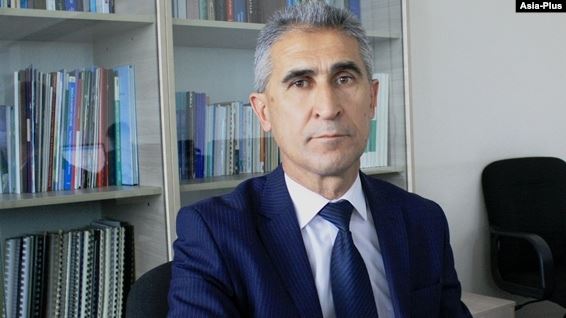
Sep 10, 2019 | News
The ICJ today expressed concern that a Government anti-corruption agency has engaged in acts of intimidation against the Chairperson of the Union of the Lawyers of the Republic of Tajikistan, Saidbek Nuritdinov, and 15 other lawyers.
The intimidation apparently relates to the lawyers’ defence of Abdulaziz Abdurahmonzoda, a lawyer facing trial on charges of fraud, who was allegedly ill-treated in detention by officers of the city Department of the Agency for Financial Control and Combating Corruption of the Republic of Tajikistan (Anti-Corruption Agency).
After the lawyers representing Abdurahmonzoda alleged that he had been ill-treated, the judge of the Sino district of Dushanbe city hearing the case, Ahmadzoda Farogat, requested the Prosecutor General’s Office to investigate the allegations.
Following the initiation of the inquiry of the allegations of ill-treatment, the Head of the Anti-Corruption Agency of Dushanbe, allegedly sent requests to a number of district courts of Dushanbe to obtain information about civil and criminal cases in which Saidbek Nuritdinov had participated as a lawyer.
The requests are said to seek information such as the names and, place of residence of clients: subject matter of civil cases, and details of the charges against his previous clients. In addition, it was reported to the ICJ that Judge Akhmadzoda Farogat, transmitted a list of the fifteen lawyers and copies of their official orders, the documents authorizing the representation of the lawyer, to the Anti-Corruption Agency at its request.
The ICJ notes, that while this information is not confidential per se, previous such investigations of the Anti-corruption Agency have led to criminal prosecution and conviction of lawyers.
“In this case, representation of a lawyer subject to criminal proceedings was undertaken by a group of his colleagues, including the head of the association of lawyers, in line with professional ethics, said Temur Shakirov, Senior Legal Adviser of the ICJ. “Such representation is consistent with international standards on the role of lawyers as well as national law of Tajikistan”.
“If the investigation is related to the lawyers’ representation in the case of Abdurahmonzoda, it would constitute a means of intimidation of the lawyers. And as such it should be ceased, and the lawyers should be able to continue to act freely and diligently in accordance with the national law and international law and standards on the role of lawyers”, Shakirov added.
Background
The criminal case against lawyer Abdulaziz Abdurahmonzoda was initiated under article 247.2, of the Criminal Code (fraud) on 17 April 2019. At the court hearings observed by the ICJ, Abdurahmonzoda insisted on his innocence and alleged breaches of the criminal procedure in course of the preliminary investigation: initiation of a criminal case without legal grounds (the case was said to lack the victim’s statement about the fraudulent actions committed on the part of Abdurahmonzoda); violation of the procedure of the preliminary investigation and submission to the court of evidence knowingly obtained by illegal means. The ICJ is observing the trial.
According to the UN Basic Principles on the Role of Lawyers, governments “shall ensure that lawyers are able to perform all of their professional functions without intimidation, hindrance, harassment or improper interference” and they should not “suffer, or be threatened with, prosecution or administrative, economic or other sanctions for any action taken in accordance with recognized professional duties, standards and ethics.”(Principle 16).
Furthermore, interference or obstruction of lawyer’s activity is prohibited by the Law of the Tajikistan on Lawyers and Lawyers’ Activities. According to the law, a lawyer cannot be held liable for any opinion expressed by him/her as part of his/her lawyers’ activity, with the exception of actions that may constitute a crime. The request from lawyers or lawyer’s unions of information related to the provision of legal assistance in specific cases is not allowed.
According to the Draft Universal Declaration on the Independence of Justice (“Singhvi Declaration”), enable the Bar Association to fulfil its function of preserving the independence of lawyers, they should “be informed immediately of the reason and legal basis for the arrest or detention of any of its members or any lawyer practising within its jurisdiction”. In these cases, bar associations are “ entitled to be represented by its president or nominee to follow the proceedings and in particular to ensure that professional secrecy and independence are safeguarded”.
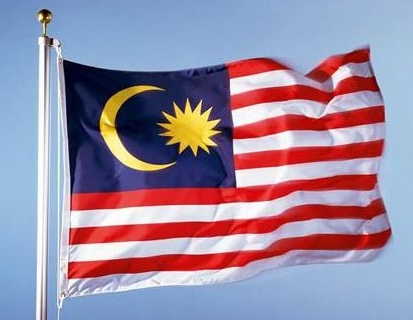
Sep 10, 2019 | News
ICJ expressed concern over the decision given on 27 August 2019 by the Malaysian High Court that a fatwa issued against the women’s organization, Sisters in Islam, should be referred to the Syariah Court.
The High Court used as a basis Article 121 (1A) of the Federal Constitution, which states that secular courts do not have jurisdiction over matters pertaining to Islam.
The ICJ called on the Malaysian authorities to ensure that custom, tradition, and religion should not be used as a justification to undermine human rights, including women’s human rights.
In 2014, the Selangor Fatwa Council issued a fatwa declaring the Sisters in Islam a “deviant organization.” For many years, Sisters in Islam has been promoting more egalitarian interpretations of Islamic laws with the aim of ending discrimination against women and achieving equality in the Muslim family.
“For women to fully exercise their religious freedom, they must be able to retain or adopt the religion of their choice, and they must be able to continue belonging to this religion without being discriminated against within the religion,” said Emerlynne Gil, ICJ’s Senior International Legal Adviser.
The ICJ stressed that under international law, States have an obligation to protect people who are prevented from exercising their religious freedom by private actors, such as their own religious communities.
“The Malaysian government, including the judiciary, has the obligation to protect groups like Sisters in Islam when they face persecution from within their religious communities for propounding alternative views about their religion,” said Emerlynne Gil.
Furthermore, the ICJ had previously underscored in a 2019 briefing paper on the challenges to Freedom of Religion or Belief in Malaysia, the tensions emerging from jurisdictional disputes between civil courts, which apply federal and state laws, and Syariah courts, which apply Islamic laws.
In 2018, the UN Committee on the Elimination of Discrimination against Women, in reviewing the performance of Malaysia, voiced its own concern over “the existence of a parallel legal system of civil law and multiple versions of Syariah law, which have not been harmonized in accordance with the Convention on the Elimination of All Forms of Discrimination Against Women (CEDAW).” The CEDAW Committee concluded that this “leads to a gap in the protection of women against discrimination, including on the basis of their religion.
Contact:
Emerlynne Gil, Senior International Legal Advisor, ICJ, e: emerlynne.gil(a)icj.org









